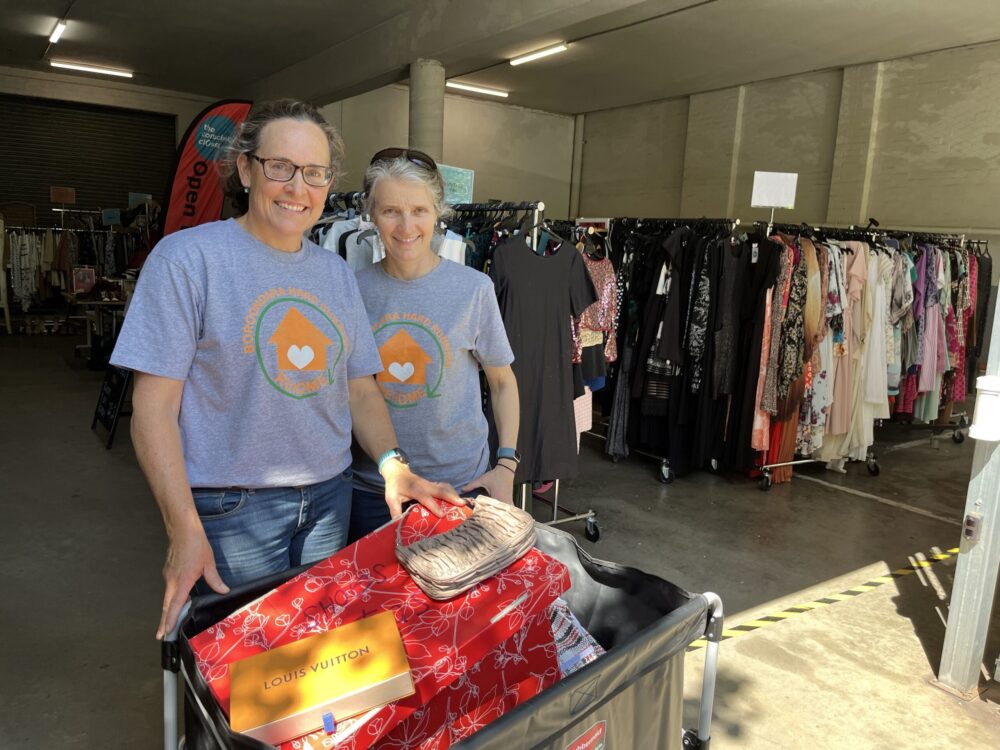
Boroondara Hard Rubbish Rehome
A not-for-profit, volunteer-run community group. We promote and support reuse, repair, recycling, refurbishing, repurposing (upcycling) and replanting of pre-loved items through sharing, education, and events. Boroondara Hard Rubbish Rehome (BHRR) is for individuals, not for professional collection companies or professional collectors to use. We are inspired by the Darebin Hard Rubbish Heroes.
What we do
BHRR aims to help keep pre-loved items in use and out of landfill, rethink the need to buy new, and build meaningful community connections through supporting a circular economy.
Why we do it
Across our diverse community, we have resources, knowledge, time and skills to share.
We want to build community by:
- connecting people through local action to support a circular economy and reduce our environmental impact;
- reframing the discussion around waste and resources;
- upskilling people to repair, refurbish or repurpose pre-loved items;
- harnessing the power of individuals to improve lives by rehoming items with those that need them;
- improving community and individual wellbeing through growing local connections;
- measuring success through personal connections made and resources kept out of landfill; and
- valuing and fostering honesty, integrity, inclusiveness and generosity in all we do’.
To learn more about this initiative, go to BHRR’s facebook page here. https://www.facebook.com/groups/809680593385005/
BHRR Rehomies supercharging the local circular economy.
A community within a community.
Jennie Irving, Catherine Krestyn
Boroondara Hard Rubbish Rehome (BHRR) is much more than its name suggests. While the group’s core purpose is to recirculate resources within the Boroondara community, saving them from landfill, this is just the tip of the BHRR iceberg.
BHRR’s cofounders, Jennie Irving and Catherine Krestyn, have built a caring, grassroots sustainability community – the Rehomie community, or ‘Rehomies’ as its 13000+ Facebook members are known.
What sets this award-winning sustainability group apart is how it supports and educates residents in non-judgmental and practical ways. BHRR is about solving local challenges with local solutions by empowering individuals. This includes challenging people’s attitudes, and also the language around our surplus. Gone are the days when owners of hard rubbish piles were called ‘lazy’ or ‘thoughtless’, and ‘waste’ was mentioned more often than ‘resources’. A deliberate shift in language helps to drive this shift in approach to more sustainable practices.
Local access inspires local action.
As Cath points out, ‘Large volumes of reusable resources are commonly found in hard rubbish piles. But there are also different options for donating resources’. So why the disconnect between our significant surplus and options for their continued use elsewhere?
As the cofounders have discovered, available local options are not always possible to access or even that available. Jennie explains, ‘Often there are barriers to recirculating resources like social isolation, personal trauma, mobility challenges, language and time constraints, lack of transport, and limited provision or knowledge of local options.’
And the usual default – op shops – can’t take everything and are often full. As Cath reflects, ‘Hard rubbish bookings are often a last resort. People don’t want to throw away reuseable resources but they don’t always know where else to take them, or they lack the capacity to do this.’
 Filling local gaps.
Filling local gaps.
This is where BHRR is filling a significant gap in the Boroondara community, meeting people at their point of need. ‘Before putting resources out for hard rubbish, Rehomies can recirculate them by offering them for free, through the Rehomie community on Facebook. They can also share locations of local hard rubbish piles so anyone interested can rescue resources from them,’ explains Jennie. For this reason, BHRR is a game changer locally.
As Cath shares, ‘This has created an innovative way to address the local challenge of diverting reuseable resources from hard rubbish piles and landfill, whilst building connections and knowledge in the local community’. Jennie and Cath see this as a win-win, as increasingly more residents feel connected to and inspired by practical options like BHRR. As the Rehomie community continues growing, Jennie and Cath consider other possibilities for the group.
What next?
‘Storage options are always a challenge for local, grassroots groups, particularly those like BHRR dealing in large volumes of physical resources’, says Jennie. ‘A more permanent storage solution would be a boon for our group activities and the community events we run, like the BHRR Spring Garden Market in late October.’ ‘This key event with a garden theme, is based on hard rubbish rescued resources,’ highlights Cath.
In the last two years alone, the two cofounders have rescued over 12,000kgs from local hard rubbish piles and recirculated these to the Rehomie community and beyond. ‘It would be great to get our verandahs, garages, living rooms and gardens back!’ quips Cath. And based on their remarkable contribution to local, community sustainability outcomes so far, it’s easy to see that this is not the last we’ll hear about BHRR. Check them out on Facebook.


